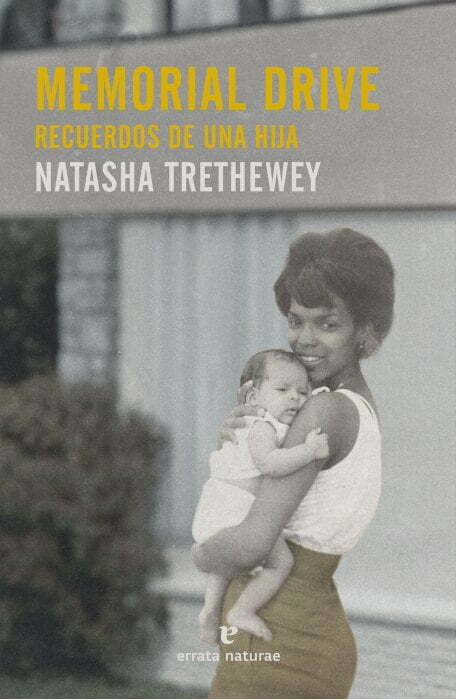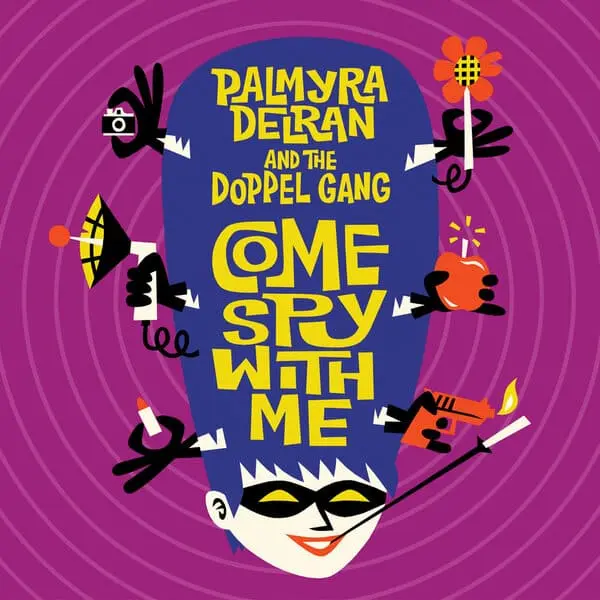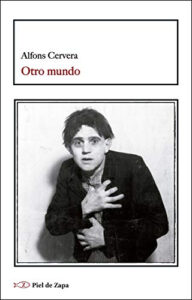Partimos de un hecho real, que desgraciadamente, se sigue produciendo en la actualidad, es decir, una muerte por violencia de género. Natasha Trethewey —la autora del libro— es la hija de Gwendolyn Ann Turnbough, asesinada por su pareja, Joel Grimmette, el cinco de Junio de 1985.
Natasha ha necesitado treinta y cinco años para remontarse a los hechos funestos que sucedieron entonces. Aunque todo gire en torno a ese traumático hecho, la autora rememora también su pasado de infancia y adolescencia junto a su madre y su familia.
Su madre trabajaba como jefa de Recursos Humanos en el Departamento de Salud Mental del condado de Atlanta, donde estaban viviendo. Regresa treinta años después al lugar donde fue asesinada y recuerda la última vez que estuvo al poco de morir, cuando contaba ella, con diecinueve años. Pocas cosas se llevará, entre ellas, unos libros, un cinturón y una planta a la que su madre encomendó sus cuidados:
“Sólo me quedé con unos pocos libros, un cinturón bastante pesado hecho de balas y una planta a la que tenía mucho cariño, una Dieffenbachia. Durante toda mi infancia, había sido responsabilidad mía cuidarla. Cada semana le quitaba el polvo y rociaba las hojas superiores y cortaba las inferiores que se habían puesto marrones. “Ten mucho cuidado con ella”, me advertía mi madre. Puede parecer que se trataba de una pequeña precaución innecesaria, pero es que en la savia de la Dieffenbachia que rezuma de las hojas y los tallos hay una toxina”.
Natasha Trethewey “Memorial Drive” Errata Naturae 2022 —Las sucesivas citas tienen como referencia la misma autora y libro—.
En el momento del nacimiento de la autora, en 1966, hablamos de un Estado sureño inmerso todavía en una severa segregación racial. Su madre negra, con apenas 22 años, su padre fuera en viaje de trabajo. Coincide el 26 de abril, Día de los Caídos, fecha en que se glorifica al viejo sur y se resalta la supremacía del hombre blanco. En numerosas ocasiones ha imaginado la autora las esperanzas y expectativas que su madre podría tener ante su nacimiento:
“Me la he imaginado a menudo aguardando mi nacimiento, esperanzada y nerviosa al mismo tiempo en relación con el estado del mundo y con el momento y lugar particulares en que yo llegaría a él: un deseo feroz tomando forma en su interior”.
El matrimonio interracial de sus padres estaba prohibido en Mississippi. El padre de la autora era blanco. Las causas pro derechos iban avanzando lentamente. Natasha establece las difíciles condiciones para la población negra —para su madre— que imperaban en el Sur:
“A diferencia de mi padre, que era y se había criado en Nueva Escocia, cazando y pescando y disfrutando de libertad para vagar por los bosques, mi madre había sido una niña negra en el sur profundo, acorralada y atada a un mundo limitado por leyes segregacionistas”.
Medgar Evers, líder del Movimiento de los Derechos Civiles, había sido abatido a balazos en Jackson —Mississippi— el 12 de junio de 1963. Las personas negras y pro derechos civiles se movilizaron, su abuela entre ellos, colocaron banderas negras en las playas por la muerte de Evers. Es preciso dejar constancia, la marginalidad a la que se sometía a la población negra. Entre ellas, estaba la prohibición a la entrada en las playas. Cuando se levantó dicha prohibición, la intolerancia seguía presente, sobre su madre la autora escuchaba comentarios racistas, como “Qué cosita tan mona, lástima que sea negra” y otros del estilo. En 1964 tres activistas más, fueron asesinados. Frente a ese estado de agitación nos cuenta la autora como sus padres universitarios, se enamoraron:
“Se conocieron estudiando Literatura, en una clase sobre teatro moderno, y sus conversaciones sobre libros y obras teatrales los estimularon a verse más allá del aula, al aire libre, por la tarde, cuando paseaban por el campus y fuera de él, entre las suaves colinas verdes de Kentucky”.
Sus padres, en 1965, se escaparon a Cincinnati, donde tenían derecho a casarse, el bebé se estaba ya gestando —Natasha—. La escritora nos cuenta como de niña había cosas por las interrogaba a sus padres, como el color de la piel o el diferente trato de la gente a su padre, “señor” o “caballero”, a su madre, “chica”, nunca “señora”. Ese distinto trato a su padre y su madre la incomodaban. En el exterior no estaba a gusto. Sólo se sentía bien, en casa, junto a su familia. Los recuerdos de su infancia junto a sus padres y la familia de su madre son felices:
“Ahí es donde tuvieron lugar todos los asombros de mi infancia, la efímera felicidad de mis padres, mi incuestionable creencia en que mi vida siempre sería igual a como lo era entonces, la íntima organización de la cotidianidad con la familia de mi madre”.
Vivían con su abuela, al lado de su tía Sugar, a la que evoca con veneración. Recuerda a su apuesto tío Son, a su esposa Lizzie, los dos con un tono de piel clara. Tenían la casa con aire acondicionado. En cambio la casa de la tía Sugar era un humilde bungaló de mampostería. Había regresado de Chicago cuando nació ella. Era diez años mayor que su abuela. Había levantado la iglesia Baptista, Monte de los Olivos:
“Era la heroína de la familia: le hacía frente a todo el mundo, blancos incluidos, y siempre tenía una réplica ingeniosa e hiriente para sus habituales comentarios despectivos”.
Impresionaba a la autora, la imponente altura de su tía Sugar —1’80 m.— y cómo mascaba tabaco. Recuerda muchas actividades junto a su tía, entre ellas, ir de pesca. Pero tristemente evoca, como fue sumiéndose en una demencia senil progresiva.
El tío Son conducía el autobús escolar del programa para alumnos con pocos recursos, mientras su madre trabajaba en la Administración en el mismo programa. Su abuela para ingresar un poco de dinero, fabricaba paños y más tarde se dedicó a la costura.
Ante tanta compañía por parte de la familia de su madre, las ausencias frecuentes de su padre, a causa de su trabajo de Oficial en la Marina Real Canadiense, se sobrellevaban mejor:
“Una de las pocas fotografías que tengo en las que salimos los tres juntos es un retrato formal tomado en 1969 en el salón de la casa de mi abuela. Fue la última que nos hicieron a los tres”.
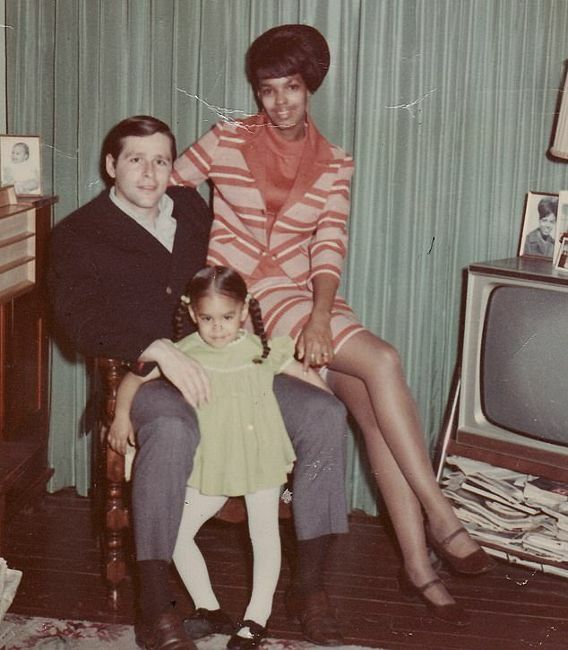
Entre los pocos recuerdos que tiene junto a su padre y su madre, figura un viaje en un Lincoln de segunda mano que compró su padre, a México. Traumático viaje, porque casi se ahoga en la piscina del hotel y tan sólo rescata una foto en una mula.
Tras ese viaje, su padre continuó estudios de posgrado en un apartamento en Nueva Orleans. Los fines de semana sus padres se turnaban para visitarse.
Su madre, Gwendolyn, nació en 1944 en Nueva Orleans. Su abuela, estudiaba escuela estética para ser peluquera. Vivían en el barrio francés. Su marido Ralph había zarpado con su unidad militar naval y un año después su abuela se entera de que se había casado con otra mujer. De ahí que regresaran a Mississippi. Su madre sólo vio una vez a su padre con 16 años, fue a verlo a Los Ángeles, estuvo una semana y al regreso no volvió a hablar de él jamás, nos cuenta Natasha.
Gratamente recuerda el armario de su madre, los vestidos, el perfume:
“El armario de mi madre estaba lleno de ropa que habían cosido mi abuela y ella, y a mí me encantaban el tacto de todas esas prendas y el hecho de que conservaran un rastro de su perfume”.
Su padre veía ya cualidades de escritora, en la autora, tal como nos refleja:
“Desde que tengo memoria, recuerdo a mi padre diciéndome que algún día sería escritora, que debido a las características de mi experiencia, habría algo que resultaría necesario que contara”.
La relación entre sus padres se fue deteriorando y recuerda cómo ambos la iban preparando para un desenlace inevitable, que la afectó de por vida, a pesar de mentalizarse de lo contrario:
“Tardé mucho tiempo en darme cuenta de hasta qué punto había aceptado el relato de mis padres, su imagen de mi situación, su decidida estrategia de consuelo. Durante la mayor parte de mi vida me he dicho que esa separación no me perturbó, que incluso en el momento me pareció bien. Ahora veo que fue sólo la primera de las numerosas historias que he necesitado contarme a lo largo de los años”.
El siguiente trauma, después de la ruptura de sus padres, fue la separación de la familia de su madre. La partida de Mississippi en 1973, está asociada en la autora al primer desencadenante de una cadena de hechos adversos, que culminan en el nefasto año de 1985, con el fallecimiento de su madre. Un período que prefiere olvidar:
“Durante mucho tiempo, intenté olvidar todo lo que fuera posible de los doce años que transcurrieron entre 1973 y 1985. Quería suprimir esa parte de mi pasado, en un acto de auto creación por medio del cual intentaba estar constituida sólo por lo que escogiera conscientemente recordar”.
Hay unas reflexiones de la autora, muy acertadas —que nos hacen meditar—, en torno al olvido y su necesidad, en determinadas ocasiones asociadas al trauma:
“Pero el olvido voluntario entraña un peligro: pueden perderse demasiadas cosas. Luego me ha resultado muy difícil recuperar la imagen de mi madre cuando más la necesitaba.
Ciertos olvidos son necesarios y nuestra mente se esfuerza para protegernos de lo que nos resulta demasiado doloroso”.
Pero olvidar o intentar controlar el yo en el trauma, se torna complicado ante la presencia de la memoria, y como de manera lúcida señala Natasha, ésta es circular:
“Si el trauma produce una fragmentación del yo, ¿qué significa entonces tener control sobre el yo? Puedes intentar olvidar. Puedes avanzar durante largo rato sin dar una vuelta completa, pero la memoria describe una trayectoria circular”.
Del viaje a Atlanta, recuerda Natasha, que les llevó un día, cómo el coche estaba cargado hasta los topes y cómo en cierto momento comenzó a salir humo del vehículo. Vio santiguarse a su madre, algo que la extrañó, pues pertenecía a la iglesia baptista. Diez años después se enteró de que se había convertido al catolicismo. Ambas esperaron mucho tiempo hasta la llegada de la grúa.
La noche anterior había soñado con que algo sucediera para no tener que partir y llegó a pensar que la avería había sido culpa suya porque de niña era supersticiosa.
Atlanta era más progresista en cuestiones raciales, nos explica Natasha. La mitad de la población era negra. Destaca el hecho de que en la escuela primaria de Venetian Hills, en los sesenta había estudiantes blancos y cuando ella entró a estudiar, solo negros. Esa época del colegio, la recuerda con agrado:
“En el colegio fue el primer sitio en el que empecé a sentirme cómoda. Podía ir a la parada del autobús escolar sola y, por las tardes, dar paseos soñando despierta y cogiendo las flores que crecían junto a la acera, margaritas amarillas o narcisos blancos y negros, mientras mi madre se quedaba en casa esperándome tranquilamente”.
En contraste con la placidez del colegio, las noches en su casa, eran perturbadoras por sus temores nocturnos. No se atrevía a ir al baño o a la cocina, teniendo pesadillas continuas. Añoraba la compañía de su abuela. Su madre la tranquilizaba y conminaba a pensar en instantes felices, para vencer el miedo. Ese tiempo que pasaron juntas afianzó la unión con su madre:
“Mi madre no podía saber la huella que me dejarían esos pocos meses que pasamos solas en un lugar nuevo, ni lo apasionadamente que me aferraría a nuestra relación a dos, a la díada que formábamos ella y yo”.
Poco tiempo después entra en sus vidas la aciaga compañía del perturbado Joel, al que apodó irónicamente la autora, “Big Joe”. Trató de ganarse la confianza de la niña. Cuenta Natasha como cuando su madre trabajaba, él la llevaba en su idolatrado e impoluto Ford Galaxia, teniendo siempre desconfianza y temiendo que la dejara abandonada en cualquier momento. Al poco tiempo de salir con él, su madre le anuncia que va a tener un hermanito, que se ha casado con Joel y que se cambiarán a un apartamento más grande. La noticia perturbó a la niña que todavía era:
“”Ahora tienes un padrastro y un hermanastro”, me dije. En la actualidad, sigo sin saber si mi madre se enteró alguna vez de que ése fue el relato en el que me apoyé durante años, repitiéndolo una y otra vez para distanciarme de esa nueva familia que no quería tener”.
Realmente el niño, que se llamará Joe, será su hermano, hijo de su madre —no de otra mujer, como pensaba ella al principio— y su padrastro.
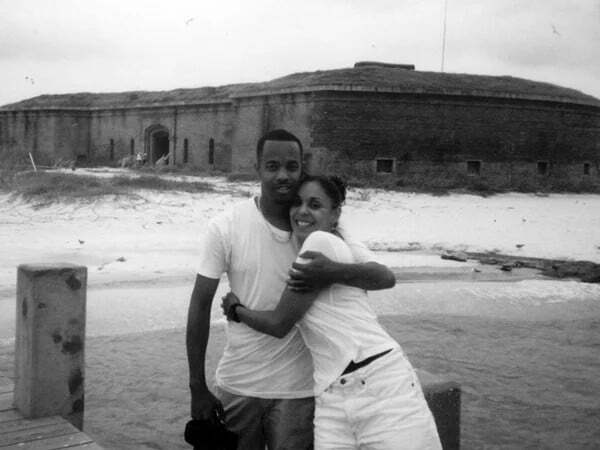
Natasha se vincula a Casandra, hija de Hécuba y Príamo, reyes de Troya. Apolo al ser rechazado por ella, la maldijo, suprimiendo la capacidad de influir en la gente con el don de sus profecías. La autora tiene remordimientos por no haber revelado a su madre los temores sobre su padrastro, que aprovechando la ausencia de su madre, la atormentaba de maneras diferentes. En ese momento, pensaba que al revelar sus pensamientos en torno al violento padrastro, las predicciones se cumplirían. El hecho es que este lastre lo ha llevado siempre con ella:
“A menudo me pregunto si nuestras vidas habrían sido distintas si yo le hubiera contado a mi madre, desde el principio, las cosas que ella no podía saber. Por ejemplo, que Joel solía mortificarme de varias maneras cuando ella no estaba en casa.
Siempre había alguna pequeña cosa de la que me acusaba, alguna transgresión que inventaba para poder castigarme. “Sé muy bien cómo enderezarte”, decía. “Eres como esos niños retrasados con los que trabaja tu madre. Habría que internarte””.
Inevitablemente se van a producir cambios en la familia. Vivir en una casa más amplia con comodidades. Con una piscina. Pero el padrastro quiere más. Quiere que Natasha cambie su apellido. Ella se opone, comunicándolo a su madre:
“Es un año de grandes cambios y ahora él quiere que te cambies el apellido. Le dices a tu madre que no.
—Quiero conservar mi apellido —Le explicas.
No quieres un apellido nuevo que borre el de tu padre. Y, sobre todo, no quieres que Joel borre a la persona que llevas siendo toda tu vida”.
Nueva mudanza por consiguiente, nuevo colegio, son las constantes en su corta vida:
“Es la cuarta vez que te mudas en cinco años y la tercera vez que cambias de colegio. Por suerte, este colegio te encanta, como te encantaron los dos anteriores, sobre todo por la señora Messick. Adoras su semblante serio y sensato, la forma en que el pelo castaño salpicado de canas le enmarca el rostro como un gorro, el hecho de que cuando no se cree algo que le cuentan, dice: “¡Pamplinas!”, mirando por encima de las gafas con los brazos en jarras”.
Se une otro contratiempo. Su madre tiene un nuevo cargo, como directora de personal en un Centro de Discapacitados Mentales de Georgia, por consiguiente, menor tiempo para compartir entre las dos.
Y dolorosamente, Natasha, recuerda escuchar el primer maltrato físico a su madre, desde su habitación:
“Estas en quinto la primera vez que oyes cómo le pegan a tu madre.
Entonces lo oyes, el sonoro puñetazo que le da Joel a tu madre. Y después la voz de ella, casi un gemido, pero tranquila, racional; “Por favor, Joel. Por favor, no me pegues más”. Por lo que sabes, es la primera vez. Pero lo más probable es que no lo sea.”
Los temores que tenía sobre su padrastro, se confirman. A raíz del maltrato a su madre, su propia vida da un vuelco. En los estudios se descentra. En la actualidad al tratar de ponerse en su lugar como la niña que era, incluso en la escritura tiene que poner una barrera, como si de otra persona se tratara, para soportar el sufrimiento:
“Mírate. Incluso ahora sigues pensando que puedes, por medio de la escritura, alejarte de la niña que fuiste, distanciarte por medio de la segunda persona, como si esa a la que le pasó todo esto no fueras tú”.
Se añade otra adversidad. Ambas apenas pueden desahogarse juntas por la presencia vigilante del maltratador.
Una válvula de escape es el diario que su madre le ha comprado. Tiene un candado. Su padrastro —no podía ser menos—, lo profana, rompiendo el candado y leyéndolo. Pero su primer acto de resistencia, es reflejar sin tapujos lo que piensa de él:
“¡Estúpido hijo de puta!”, escribí. “¿Crees que no sé lo que estás haciendo? No sabrías que es lo que pienso de ti si no estuvieras leyendo mi diario.
También estaba segura de que nunca me diría nada a mí, que preferiría hacer como si no hubiera leído las palabras que le había dedicado. Desde aquel momento, cada vez que me miró, le sostuve la mirada. La imagen de mis palabras ocupaba el espacio que había entre nosotros. Había empezado a recomponerme”.
Se acuerda vivamente, la autora, de cuando anunció en casa, que la habían ascendido a editora en el periódico de la escuela y que quería ser escritora. Ante la oposición del padrastro, todavía recuerda las palabras de su madre:
—Hará-LO QUE LE DÉ-LA GANA
He rememorado esta escena en mi cabeza innumerables veces. “Hará-LO QUE LE DÉ-LA GANA”. Todavía hoy escucho en la voz de mi madre, en su mesurado autocontrol, el origen de la mía”.
La policía encontró un cuaderno de su madre, catalogándolo como prueba. Es estremecedor como narra el proceso de desintegración de la pareja, su intento fallido de una terapia conjunta que solo tuvo lugar una vez, y la huida definitiva del hogar. Veinticinco años después, Natasha accedería a él:
“Cuando al fin me escapé hacía un día gris, lluvioso y frío. Yo había entrado en la habitación de mi hija la noche anterior y le había dicho que nos íbamos a marchar y que apilara las cosas que quisiera llevarse, y que yo la recogería en el colegio. Mi hijo se despertó enfermo. Lo ayudé a vestirse y lo dejé en la cama. Mi marido se marchó sobre las siete y media. Disponía de una hora antes de salir para el despacho de John. Tardé una hora y veinte minutos en hacerlo todo. Llevé los abrigos de invierno, etc., a casa de una amiga, metí a toda prisa las cosas en el coche y cogí a mi hijo y al perro”.
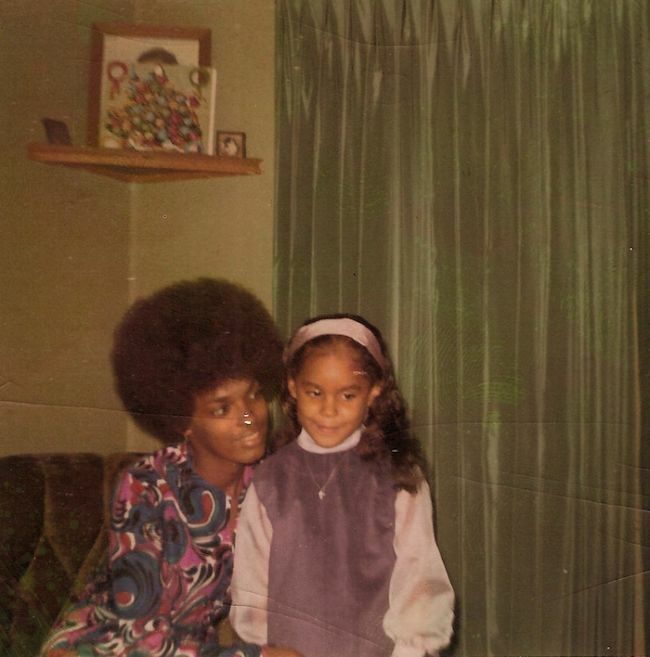
Estamos en 1983. Admiten a Gwendolyn y su familia en un Centro de Acogida. Su padrastro, sabiendo que Natasha estaría en el campo de atletismo de la Universidad, se acercó a verla, poco tiempo después. Produce escalofríos, como la intención de él, era asesinar a la autora, pero al mostrarse amable, su padrastro cambió de planes. Conocer esos hechos, la marcaron desde entonces:
“Entonces todavía no sabía hasta qué punto esa escena me perseguiría a lo largo de los años —incluso antes de leer los documentos—, pensando que mi actitud hacia él había sido una especie de traición a mi madre. ¿Había notado en ese momento, había notado primero con el cuerpo, que lo que yo había hecho iba a cambiar el curso de los acontecimientos? Si me hubiera matado entonces, como afirmó que era su plan, lo habrían atrapado, condenado y encarcelado. Al sonreírle y saludarlo, me había salvado sin darme cuenta”.
Le conceden el divorcio a su madre. Se mudan los tres a un nuevo apartamento de Memorial Drive. Su padrastro se había internado en el hospital de veteranos de guerra, pero en contra de la opinión de los psiquiatras, podía salir cuando quisiera. Junto a su madre, limpia la casa, recogen las cosas y la ponen en venta, antes de que el padrastro saliera del hospital.
Se produce poco después, el primer intento de asesinato sobre Gwendolyn. Gracias a una serie de circunstancias, Natasha avisa a la policía y detienen a su padrastro, cuando lo peor iba a suceder.
Es verano de 1984 y junto a su madre y su hermano celebran la condena por un año de “Big Joe”.
Vuelve a incidir la autora en que esa necesidad de olvido, la priva de recordar todo lo acontecido junto a su madre y en mayor medida, poder plasmarlo en la escritura:
“La escritora que hay en mí ahora dice que habría sido implacable, que habría documentado de manera sumamente precisa lo que fueron nuestras vidas durante los años previos a la tragedia para recordarla mejor de lo que ahora me permite mi memoria, con todas sus omisiones y correcciones. Pero en aquella época había empezado a deshacerme de muchísimos recuerdos, por una especie de necesidad, sin saber que habría cosas que con el tiempo querría recuperar a toda costa”.
Al salir de la cárcel, Joel acosa a llamadas telefónicas a Gwendolyn. El fiscal, necesita pruebas para detenerlo y se graban las llamadas, que atestiguan las amenazas del ex marido. Transcribe Natasha las conversaciones telefónicas, reflejando el grado de locura al que llegan los maltratadores, que logran creerse sus propias mentiras.
Se produce la orden de captura del juez a la una de la madrugada del cinco de Junio de 1985. De manera desdichada, el policía encargado de brindar protección a su madre, se marcha al amanecer, cuando su misión era quedarse; produciéndose el asesinato de Gwendolyn Ann Turnbough, a manos del ex marido.
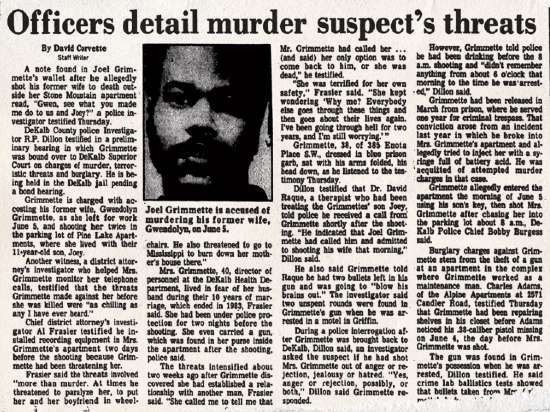
Para una hija joven, la muerte de la madre a una edad temprana, siempre va a producir un trauma que se va a arrastrar de por vida, pero mayor huella deja, si como en el caso propio que nos narra Natasha Trethewey —y tantos otros que siguen ocurriendo—, tiene lugar a raíz del maltrato continuado y del asesinato, finalmente.
El origen del libro se produce —como en alguna entrevista manifestó la autora—, a raíz de la concesión del Premio Pulitzer de Poesía en 2007, por el libro de poemas, Native Guard. En las notas se hablaba de ella, se mencionaba a su padre, Eric Trethewey, también poeta y de su madre apenas nada.
Es cierto que se lo había planteado anteriormente, pero siempre lo postergaba. Al fin, a partir de ahí, quiso dar voz a su madre, porque gran parte de su vocación de escritora, se la debe a Gwendolyn.
No únicamente relata los hechos acontecidos en 1985, sino que se retrotrae a su infancia y la lucha de su madre y la familia de ella, ante la intolerancia racial. Pero además, una parte muy importante de los sentimientos de la autora sobre el pasado, nuevamente en el momento de escribirlo, vuelve a revivirlos. Ella misma, en el libro revela que mientras lo está escribiendo ha soñado más veces con su madre que desde su muerte. Tiene, indudablemente la influencia de la poesía, porque Natasha es poeta, ante todo, y eso se aprecia en la prosa. Con anterioridad, la poesía le sirvió de catarsis, como reflejó en una entrevista en 2020:
“Shelley dijo: “La poesía es un espejo que hace hermoso lo que está distorsionado”. Escribir poemas, particularmente los poemas de elegía sobre mi madre, hizo esto por mí”.
Natasha Trethewey a Lisa O’Kelly en The Guardian, 2020
Se da la circunstancia de que su padrastro salió de prisión en 2019. En la misma entrevista, Lisa pregunta a Natasha sobre dicha circunstancia, respondiendo la autora que gracias a que se mudó de Atlanta a Illinois en 2017, tiene menor temor, pero evidentemente, siempre existe el riesgo de que pudiera atentar contra ella.
El libro es conmovedor, mesurado y reflexivo. Es memoria, pero también olvido, como medio de paliar la aflicción causada al recordar. Sentimientos de culpa, cuando piensa que pudo haber prevenido a su madre a tiempo, del violento carácter de su futuro agresor. No hay un ápice de sentimentalismo gratuito. Y ante todo, Natasha manifiesta, su desgarro interior.
A lo largo de la obra se hace referencia a una serie de intérpretes de soul, que tanto gustaban a Gwendolyn y Natasha. Pero considero que el lamento del blues es más apropiado para el contenido del libro. De ahí que deje esta joya de disco, rescate de vocalistas femeninas, que en su momento apenas tuvieron repercusión:
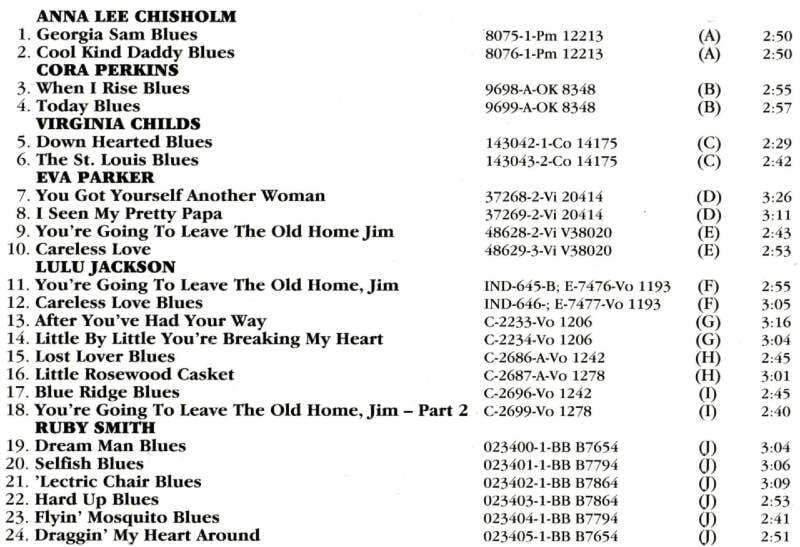

Blue Girls Vol. 3, 1924 – 1938
© Document Records, 1999 🔗
“Memorial Drive: A Daughter’s Memoir” © Natasha Trethewey, 2020
“Memorial Drive: Recuerdos de una hija”, Natasha Trethewey
Editorial Errata Naturae, 2022 ⬈
Traducido por Mariano Peyrou
232 Páginas
